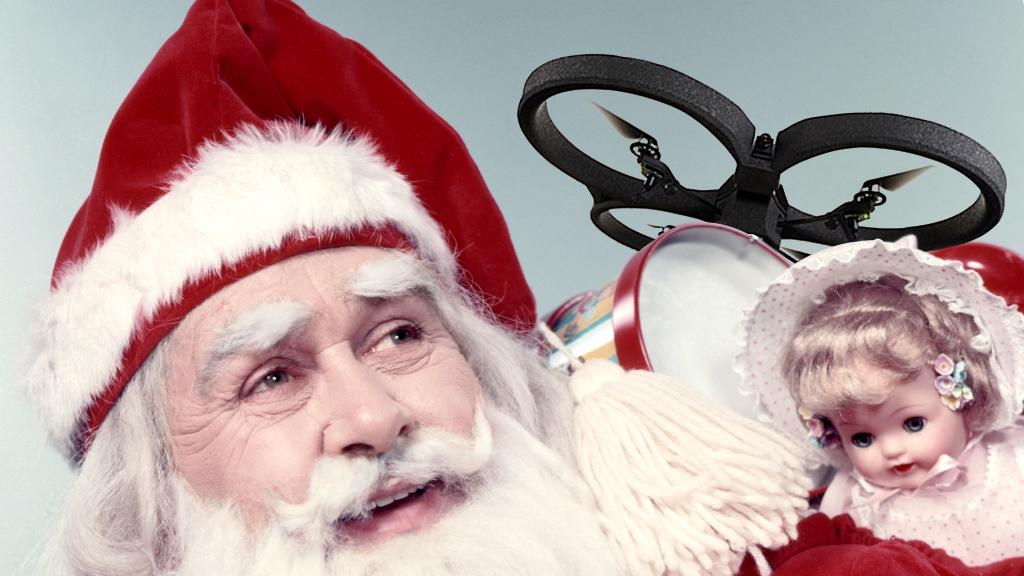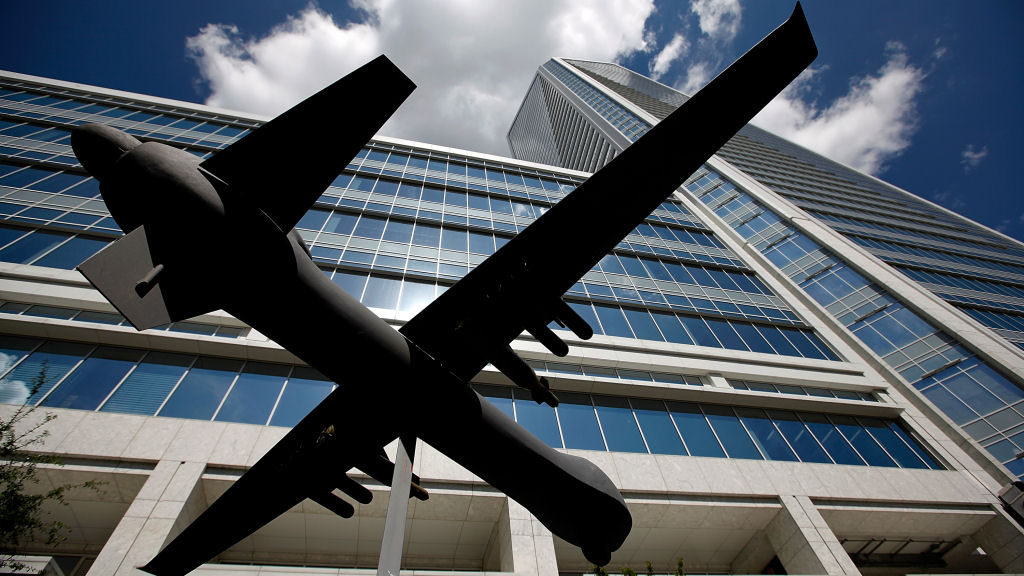All I want for Christmas is … my own drone
Forget socks, a new bike or a reindeer jumper. This year shoppers looking for an original Christmas gift can buy their loved ones a drone for just under £300.

In one of the UK’s best-known department stores, on the capital’s most famous shopping street, it lurks.
A drone – or an unmanned aerial vehicle (UAV), as they are more properly known – is on sale in Selfridges, Oxford Street, London, for just £299.
The department store has yet to comment on how many it has sold, but describes the Parrot AR Drone 2.0 Wi-Fi quadricopter on its website as “the crossroads where high-end technology meets Icarus’ dream.” It has a camera on board, and a flight time of 12 minutes.
Drones have certainly had a bad press – embraced enthusiastically by the military, particularly by the United States, they have become synonymous with a secret war being waged in Pakistan which has seen thousands of civilians killed.
The crossroads where high-end technology meets Icarus’ dream. Selfridges
These military drones, which have weapons on board, differ from surveillance drones equipped with cameras, but there are concerns about these kinds of aircraft as well. In the UK, questions have been asked over the use of surveillance drones by police and even the media. The privacy implications are obvious.
But many technology experts argue that drones actually have valuable civilian uses, from surveying crops to inspecting oil rigs. They say only Luddites would argue against the potential of drones, and, moreover, there are adequate regulations in place to protect against abuse. A recent article in the New Scientist even envisaged a future where drones are used in houses as “airborne robot slaves”.
Drones and spying
Dr Matt Bennett runs SkyCircuits, a British firm that designs autopilot and ground station systems for unmanned aircraft. He also helped set up a drone design course for students at Southampton University.
He told Channel 4 News: “My first thought is that this is an entertaining toy, for people to fly in their houses like a model helicopter. I can see as soon as you put cameras on anything people are going to get concerned, but it comes down to existing laws.
“You are already not allowed to spy on people. You already can’t climb a ladder and take a picture of your neighbour’s bedroom with your digital camera.”

As well as existing privacy laws, there are regulations governing the flight of unmanned vehicles, put in place by the Civil Aviation Authority (CAA) for safety reasons.
Its guidance reads: “Unmanned aircraft, irrespective of their size, are still classified as aircraft – they are not toys. Similarly, the person in charge of operating the controls of an unmanned aircraft is referred to as the pilot.”
“Pilots” have to keep their drone within 500m of them horizontally, and 400ft vertically, so that they can see them. These rules apply for both commercial pilots and recreational fliers. Any deviation requires permission from the CAA.
‘Drones have a PR problem’
However campaigners warn that there are plenty of privacy breaches that can occur within this space.
Eric King of Privacy International told Channel 4 News: “The technology is getting cheaper and cheaper. You can get robots to hoover your house now and the fact that you can buy drones for Christmas exemplifies that this is the next logical extension of things that people can get UAVs to do.
“This an important issue to tackle and at the moment the government is ducking it. Drones are not inherently a bad thing, they can be used for good, but we need clarity on how, when, and what they should be used for.”
There’s a market for a toy that people can fly around inside. But whether in the future it will make you a cup of tea or not, I’m not sure. Dr Matt Bennett, UAV expert
There is also growing unease about the kinds of technology which can be attached to the drone – the add-ons – rather than the drone itself. For example, X-Ray vision cameras can be fitted to a drone, or some arms companies sell drones for civilian use that can intercept phone calls in a certain area.
But drone defenders say there is no cause for concern as long as the rules are followed.
“The regulations are fine…But we do have a PR problem perhaps,” admitted SkyCircuit’s Dr Bennett.
“I think there will be a gradual increase in UAVs. I don’t think we’ll see the explosion in UAVs that some people are predicting. At the moment, the future for UAVs is commercial and civil – things like cargo-carrying.
“For personal use, I’m not sure there’s a market for that. There’s clearly a market for a toy that people can fly around inside. But whether in the future it will make you a cup of tea or not, I’m not sure.”
-
Latest news
-
Windrush scandal: returning to the UK after a forty year wait6m

-
Netanyahu ‘survival’ depends on ‘expanding war’ says head of Palestinian National Initiative5m

-
Proposed law change could strip parental rights from paedophiles5m

-
Hugh Grant settles privacy lawsuit against The Sun newspaper publisher2m

-
Post Office Scandal: what did top executive know?6m

-




